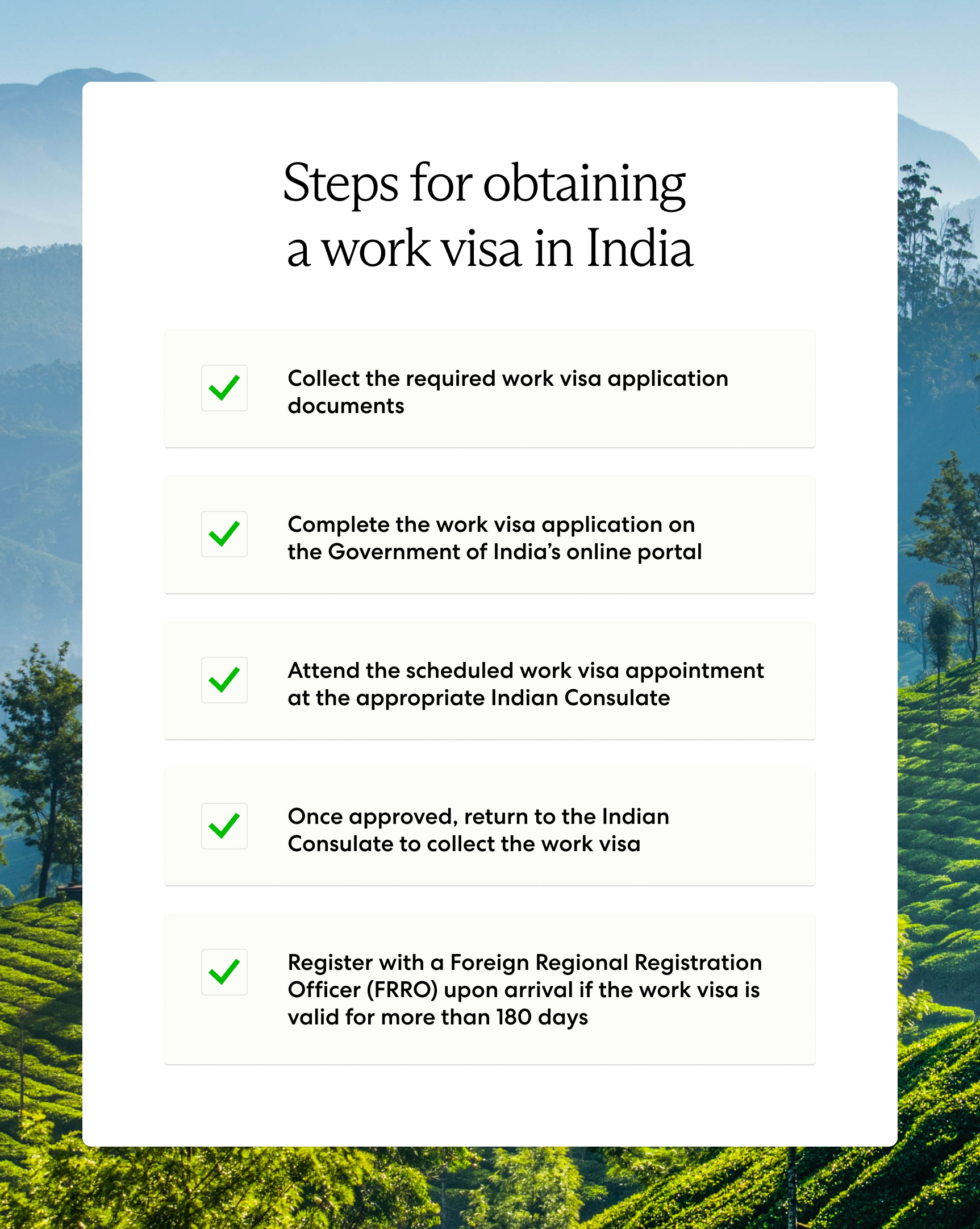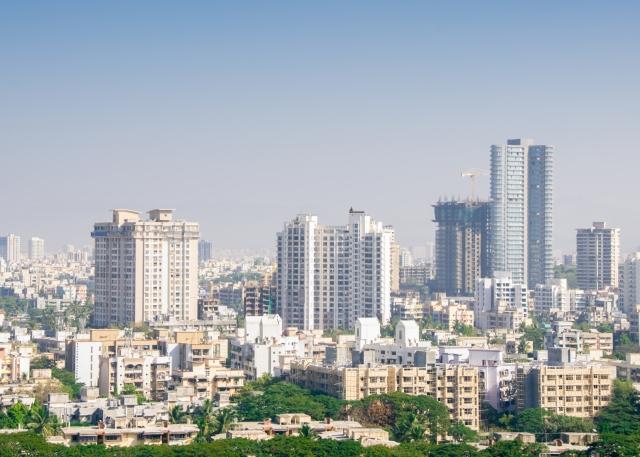For many reasons, India is a top destination for global companies expanding to the Asia-Pacific (APAC) region.
India is home to one of the largest consumer markets in the world, and its talented workforce is a powerhouse in technological innovation. As of 2023, it has become the world’s fifth-largest economy, surpassing the U.K.
However, many global businesses expanding into this market face unique challenges when hiring and relocating foreign talent to India. Understanding and adhering to India’s visa regulations is essential to avoid legal issues, maintain operational continuity, and protect brand reputation.
Who is eligible for work authorization in India?
Generally speaking, highly skilled professionals who plan to work as employees for locally-registered Indian companies are eligible for work authorization in the country.
However, the eligibility criteria for obtaining an Indian work visa also include other work categories, such as consultants, artists, and investors, making the opportunity to do business in the country a legitimate option for many professionals.
Below are several of the work categories eligible for an India work visa:
- Consultants working on a contract basis who receive a fixed payment from a local company
- Artists under contract who conduct regular performances at hotels, clubs, and other organizations, as well as coaches in sports and other specialized fields
- Athletes with a performance contract from a local club
- Self-employed professionals in engineering, IT, medicine, accounting, law, and other highly skilled fields of work
- Foreign language teachers and interpreters
- Specialists working with local NGOs or multinational corporations with operations in India
- Entrepreneurs establishing a local business
- Individuals traveling to India for meetings or negotiations
In addition to falling under one of these categories, some applicants must also prove they are a senior executive or a highly skilled professional who will earn more than US$25,000 annually while in the country.
Indian authorities do not issue work visas to foreigners for routine clerical positions or jobs for which qualified Indian nationals are already available.
Types of India work visas
India offers two types of work visas: the Employment visa (E visa) and the Business visa (B visa). While both allow individuals to conduct business-related activities in the country, each visa grants its holders a distinctly different set of permissions.
Employment visa
The Employment visa in India is a general work visa available to individuals from various work categories. Indian authorities primarily issue this visa to foreign nationals earning at least US$25,000 annually while employed with a locally-registered company.
However, candidates from other backgrounds, such as consultants, artists, self-employed professionals, and volunteers working for NGOs, are also eligible for the Employment visa.
This visa is valid for the entire duration of the candidate’s work contract—the visa is typically issued for one year but can be extended up to five years. While the holder’s spouse and dependants are not included, they can apply for a separate Entry visa, or “X” visa.
Business visa
India’s Business visa is suited for foreign nationals traveling to the country for business purposes, but not necessarily to work under a local organization.
Business visa holders can make short trips to India to conduct meetings or negotiations, establish a local business, or make local investments.
The visa is valid for up to five years, depending on the applicant’s requirements. For U.S. nationals, it is valid for up to 10 years. Like the Employment visa, dependents are not included but are eligible to apply for a separate Entry visa.
Candidates applying for a Business visa must demonstrate they have sound financial standing and sufficient expertise in their field.
How to obtain an India work visa
The application process for obtaining an India work visa consists of three main phases:
- Collecting required documents
- Completing the online application
- Attending a visa appointment at an Indian Consulate
Below, we outline each step for obtaining an India work visa in detail.

1. Collect the required documents
First, the candidate must collect all of the required documents for the application, including a valid passport, identity photos, and an employment contract from a locally registered company.
Below is a noncomprehensive list of essential documents candidates must prepare for their visa application:
- A passport that is valid for at least six months with at least two blank pages
- Four passport-size photos
- An employment contract in English specifying work conditions and employment duration
- A copy of the employer’s company registration
- Proof of residence in India (e.g., hotel reservation)
- A completed visa application form
- The applicant’s resume or CV in English
- Education certificates and other supporting documentation, such as letters of recommendation, proving the candidate’s professional competencies
2. Complete the online application
Once the candidate has collected the required documents, they must complete and submit a visa application via the Government of India’s online portal.
At this stage, the online system automatically directs candidates to schedule a physical visa appointment with their local consulate in their country of residence and pay visa fees.
Fees typically range from US$110 to over US$1,000, depending on the type of visa and country of residence.
The system also generates a unique personal ID number that applicants must keep on hand for all future correspondence with the consulate.
When finished, the candidate must print a copy of the completed visa application and include it with the required documents at their physical visa appointment.
3. Attend the visa appointment
Depending on the location, applicants may submit documents at the Indian Visa Application Center or directly at the Indian Mission. Some applicants may need to schedule an appointment for document submission.
4. Collect the visa
Upon receiving a decision, the candidate may return to the embassy to collect their passport with the visa stamped inside.
While the consulate requires three days to process a work visa application, applicants should be prepared for possible delays.
5. Register with a Foreign Regional Registration Officer (FRRO) upon arrival
If an individual’s visa is valid for more than 180 days, they must register with the Foreign Regional Registration Officer (FRRO) within 14 days of arrival in the country.
Visa holders can complete this registration online through the e-FRRO website.
Specific categories of foreigners are exempt from registration, including U.S. nationals holding 10-year Tourist/Business Visas with stays not exceeding six months, foreigners of Indian origin holding five-year multiple entry X visas with stays not exceeding six months per visit, and foreigners below the age of 16 years.
Considerations before obtaining an India work visa
It’s important to remember that obtaining a work permit in India for foreign nationals requires an employment contract from a locally incorporated entity. This is a major obstacle for global companies looking to hire foreign talent in the country.
However, by partnering with an employer of record (EOR) in India, you can quickly and compliantly hire talent in India without undergoing entity establishment.
An EOR is a third-party organization that facilitates global mobility for international entities. By serving as the legal employer of your global workforce, an EOR allows you to quickly hire and relocate top talent worldwide without limitations.
Learn more: What Is an Employer of Record (EOR)?
India work visa FAQs
Below are answers to commonly asked questions about obtaining work authorization in India.
Can a U.S. citizen work in India?
Yes. However, U.S. citizens who want to work in India must obtain a work visa first. The type of visa required depends on the nature of the intended activities in the country:
- For employment with a locally-registered Indian company or providing consultancy services, an Employment visa (E visa) is required
- For short-term business trips, conducting meetings, establishing a local business, or making local investments, a Business visa (B visa) is appropriate
What is the cost of obtaining work authorization in India?
The total cost for obtaining work authorization in India ranges from roughly US$110 to over US$1,000, depending on the visa you apply for, its duration, and your country of residence.
For example, U.S. citizens applying for an Employment visa in India lasting up to six months must pay US$140, whereas the fee is the same (US$220) for a visa lasting more than six months and up to one year and a visa lasting more than one year and up to five years.
To obtain an up-to-date visa fee schedule, candidates should contact the Indian consulate in their country of residence.
How long does a work visa in India last?
Most Indian work visas are valid for one year. However, validity periods range from six months to five years, depending on the visa and the applicant’s field of work.
For example, most individuals on an Employment visa in India hold a one-year visa. However, workers in the IT sector are eligible for a three-year visa.
Individuals may extend their Indian work visa on a year-by-year basis for up to five years from the date of issue. To do so, the holder must lodge an application at the Foreigners Regional Registration Office (FRRO) in their state of residence in India.
Immigration compliance in India
Immigration compliance in India is paramount for employers and foreign nationals. The Foreigners Act of 1946 establishes strict regulations governing foreigners’ entry and exit as well as their stay in the country.
Key compliance requirements
Foreign nationals must adhere to several crucial compliance measures:
- Obtain appropriate visas and work permits before entering India
- Register with the FRRO within 14 days of arrival if staying for more than 180 days (if applicable)
- Maintain valid documentation and report any changes in personal information
- Comply with specific visa conditions and restrictions
Penalties for noncompliance
Section 14 of the Foreigners Act outlines severe consequences for violating immigration laws:
- Imprisonment for up to five years
- Monetary fines
- Forfeiture of any bond entered as a condition of entry
These penalties apply to various infractions, including overstaying visas, engaging in unauthorized work, and violating visa conditions.
Employer responsibilities
Employers hiring foreign nationals must:
- Ensure proper visa and work permit documentation
- Assist with FRRO registration (if applicable)
- Maintain records of foreign employees’ information
- Report any changes in employment status to authorities
Strict adherence to these compliance requirements is essential for both foreign nationals and their employers to avoid legal issues and ensure a smooth experience in India.
Easily hire or relocate talent in India with Velocity Global
Despite the benefits of doing business in India, global companies without a local entity face significant obstacles when hiring and relocating foreign talent to the country. Eliminate the roadblocks by partnering with Velocity Global.
Velocity Global’s integrated Global Immigration services streamline visa acquisition for international companies and their distributed teams. Our expert team consults with companies on exact mobility needs, obtains all necessary authorizations, and ensures ongoing compliance so teams can quickly hire and relocate foreign talent worldwide.
Read this global immigration success story where Velocity helped ConsenSys, an international blockchain technology company, transfer a valuable employee from the U.K. to Switzerland in under three weeks by expediting the entire immigration process.
Or reach out today to streamline global hiring efforts and easily hire top talent in India.
Topic:
Immigration + Relocation



